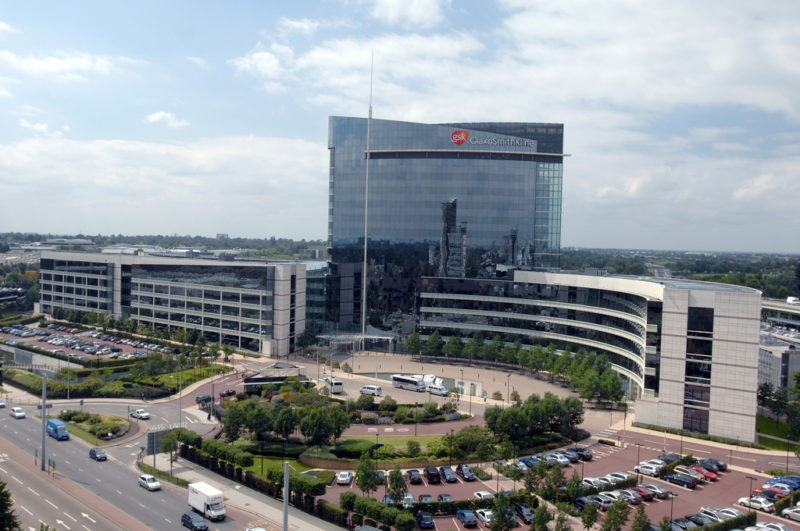New GSK CEO Targets Pharmaceutical Growth
Emma Walmsley, who became CEO of GlaxoSmithKline (GSK) on April 1, is leading a company that is seeking to get better returns from its pharmaceutical business. So what may be in store for GSK?
Walmsley took over the helm of GSK after leading the company’s consumer healthcare business. Her predecessor, Andrew Witty, had a measured approach for growth for GSK with a strategy of building a diversified company that included non-drug assets in consumer healthcare and vaccines. So will Walmsely take a different approach? DCAT Value Chain Insights takes an inside look.
Inside GSK
To gain a sense of the future strategic direction of GSK, it is important to look at the recent history of GSK and its new CEO. Emma Walmsley was appointed chief executive 0fficer of GlaxoSmithKline (GSK) on April 1, 2017 from her role as CEO of GSK Consumer Healthcare, a joint venture between GSK and Novartis. She joined GSK in 2010 with responsibility for Consumer Healthcare, Europe and was subsequently appointed president of GlaxoSmithKline Consumer Healthcare. She has been a member of GSK’s Corporate Executive Team since 2011. Prior to joining GSK, she worked at L’Oreal for 17 years, where she held a variety of marketing and general management roles in Paris, London and New York. So one of the leading questions is will Walmsely follow her roots in consumer healthcare and follow the strategy of her predecessor, Andrew Witty, which had a strategy of building a diversified company that included non-drug assets in consumer healthcare and vaccines?
 |
|
Emma Walmsley |
Walmsley took over the head of GSK’s consumer healthcare business following the formation of joint venture between GSK and Novartis as part of a three-part deal between the companies in 2015, a major move by GSK. Under that deal, GSK and Novartis created a consumer healthcare joint venture that combined the two companies’ consumer healthcare divisions, Novartis acquired certain oncology products and pipeline compounds from GSK, and GSK acquired Novartis’ non-influenza vaccines business. That deal signified a strategic emphasis for GSK by focusing on higher-volume, lower-margin businesses of consumer healthcare and vaccines and selectively positioning itself in higher-margin, higher-risk pharmaceuticals only for certain therapeutic areas.
In the new consumer healthcare joint venture formed under that deal, GSK Consumer Healthcare, Novartis holds a 36.5% share and GSK the balance. The new joint venture has leading positions in four key over-the-counter categories: wellness, oral health, nutrition, and skin health. The joint venture has scale and commercial presence in the developed world as well as in key emerging markets.
Also as part of that three-part deal, Novartis divested its vaccines business (excluding its vaccines influenza business) to GSK for up to $7.1 billion plus royalties. The $7.1 billion consists of $5.25 billion paid upon completion and up to $1.8 billion in future milestone payments.
In the last and largest piece, GSK divested to Novartis oncology products, including two pipeline candidates at the time of the deal, for an aggregate cash consideration of $16 billion. Up to $1.5 billion of this amount is contingent on certain development milestones. With the closing of the deal, Some key products from GSK’s divestment include: Tafinlar (dabrafenib), a BRAF inhibitor, and Mekinist (trametinib), a MEK inhibitor, both approved for the treatment of metastatic melanoma; Votrient (pazopanib), a kinase inhibitor for treating advanced renal cell carcinoma and advanced soft tissue sarcoma; Promacta (eltrombopag) for treating thrombocytopenia; Tykerb (lapatinib) for treating HER2+ metastatic breast cancer; and Arzerra (ofatumumab) for treating chronic lymphocytic leukemia. Novartis also gained opt-in rights for GSK’s current and future oncology R&D pipeline (excluding oncology vaccines), which could be a source of new compounds and new targets. Sales of the acquired GSK oncology products in 2014 were approximately $2.0 billion. Earlier in 2016, GSK also completed its transaction to divest its rights to ofatumumab for auto-immune indications to Novartis Pharma AG, a subsidiary of Novartis AG, following regulatory approval. The consideration payable by Novartis Pharma to GSK may reach up to $1.034 billion and comprises a series of milestone payments.
Will new product sales deliver?
Key for Walmsley going forward is increasing new product sales as GSK faces generic competition for its top-selling product. In 2016, GSK posted revenues of £27.9 billion ($36.2 billion), up 6% at constant exchange rates (CER). Pharmaceuticals represented the largest piece of the company’s revenues in 2016, accounting for 58% of total revenues or £16.1 billion ($20.9 billion), up 3% year over year at CER. Consumer healthcare was the second largest piece at 26% or £7.2 billion ($9.3 billion), which was up 9% at CER. Vaccines represented 16% of 2016 revenues or £4.6 billion ($6.0 billion) in 2016, up 14% at CER.
Sales of new pharmaceuticals and vaccine products more than doubled to £4.5 billion ($5.8 Billion) and accounted for 24% of sales. HIV products, Tivicay dolutegravir) and Triumeq (abacavir, dolutegravir, and lamivudine) continued to be the standout products with sales of £2.7 billion ($3.5 billion) while new respiratory products, Relvar/Breo (fluticasone furoate/vilanterol), Anoro (umeclidinium and vilantero) Incruse (umeclidinium), Arnuity (fluticasone furoate inhalation powder) and Nucala (mepolizuma) also grew strongly as did the company’s meningitis vaccines, Bexsero and Menveo. GSK expects sales of new pharmaceutical and vaccine products to reach £6 billion ($7.8 billion) of revenues per annum on a CER basis in 2018.
These new product sales are important for GSK, particularly in respiratory products, its largest product franchise with 2016 sales of £6.5 billion ($8.4 billion), but where it faces generic competition for its top-selling product, Seretide/ Advair (fluticasone/salmeterol). Global Seretide/Advair sales were £3.49 billion ($4.51billion) in 2016, down 15% at CER year over year due to generic-drug incursion, The company expects that by 2020, nine products will account for approximately 90% of respiratory sales, compared to four in 2015.
In commenting on the company’s first-quarter 2017 results in late April, her first as the company’s new CEO, Walmsley noted that she will be providing a more detailed strategic outlook for the company with its second-quarter results. “This is a positive start for the year with sales growth in all three of our businesses and an improvement in the Group’s operating margin,” she said in the company’s first-quarter earnings release of April 26, 2017. “Our clear focus is on commercial execution and preparation for near-term launches in Respiratory, HIV and Vaccines. We will be reviewing these and other priorities for the business with shareholders alongside our Q2 results on 26 July.”
GSK saw sales growth in the first quarter of 2017 across all three businesses: pharmaceuticals, £4.2 billion ($5.4 billion), up 4% CER; vaccines, £1.2 billion ($1.6 billion), up 16% CER; and consumer healthcare, £2.0 billion ($2.6 billion), up 2% CER. Sales of new pharmaceutical and vaccine products in the quarter were £1.4 billion ($1.8 billion), up 52% CER. Improved group operating margin reflected leverage from sales growth, focus on costs and benefits of restructuring: pharmaceuticals 34.4%; vaccines 29.6%; and consumer healthcare 17.2%.
In further commenting on the results, Walmsley noted: “Our clear short-term and immediate priority in this context is to deliver excellent commercial execution, that means making sure that the momentum in new product growth is maintained in all three of our businesses, and that we are also well prepared for our near-term launch opportunities with the immediate focus being on Shingrix in Vaccines, the closed triple in Respiratory and the first of our two drug regimens in HIV. We expect regulatory decisions on all of these over the next 12 months. This focus on execution now is particularly important given that our next significant wave of new product launches is not expected until the early 2020s, andl longer-term then, the big focus must be to increase and deliver innovation in all three of our businesses, and the clearest priority here making the right choices to develop our Pharma pipeline which is promising, but still unproven. We have a lot of work to do here and we need to make sure that our R&D and Commercial organisations are partnering really effectively together.”








